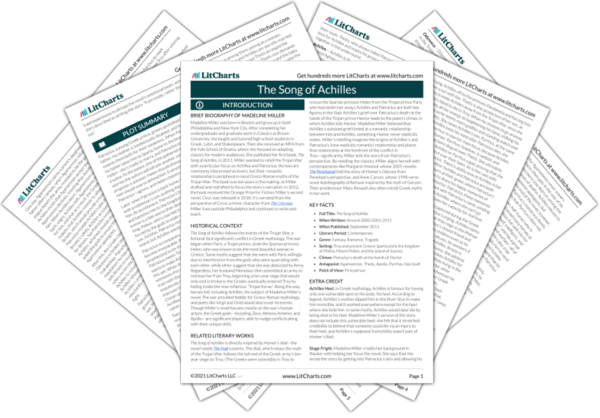Diomedes is the king of Argos and one of the generals in the Trojan War. He is also a close friend of Odysseus, and the two have a rough banter which establishes them as equals. Diomedes was one of Helen’s suitors, and he later goes with Odysseus to find Achilles on Scyros, where the two trick Achilles out of hiding by feigning an attack. Diomedes then threatens to tell everyone that Achilles was dressed as a woman unless Achilles agrees to fight in Troy, while Odysseus smooths things over and tries to convince Achilles more diplomatically. Both Odysseus and Diomedes are both intelligent and both favored by the goddess Athena, though their personalities are very different: Diomedes is loud and crass, while Odysseus is careful. Patroclus and Achilles both dislike and distrust Diomedes, whose cruel humor disturbs them; this distrust is cemented when Diomedes assists Agamemnon in sacrificing Iphigenia. Diomedes uses skillful manipulation to help quell the Greek army’s attempted mutinies, and Patroclus later guesses that he and Odysseus wanted Agamemnon to fail as a commander so they could take over.
